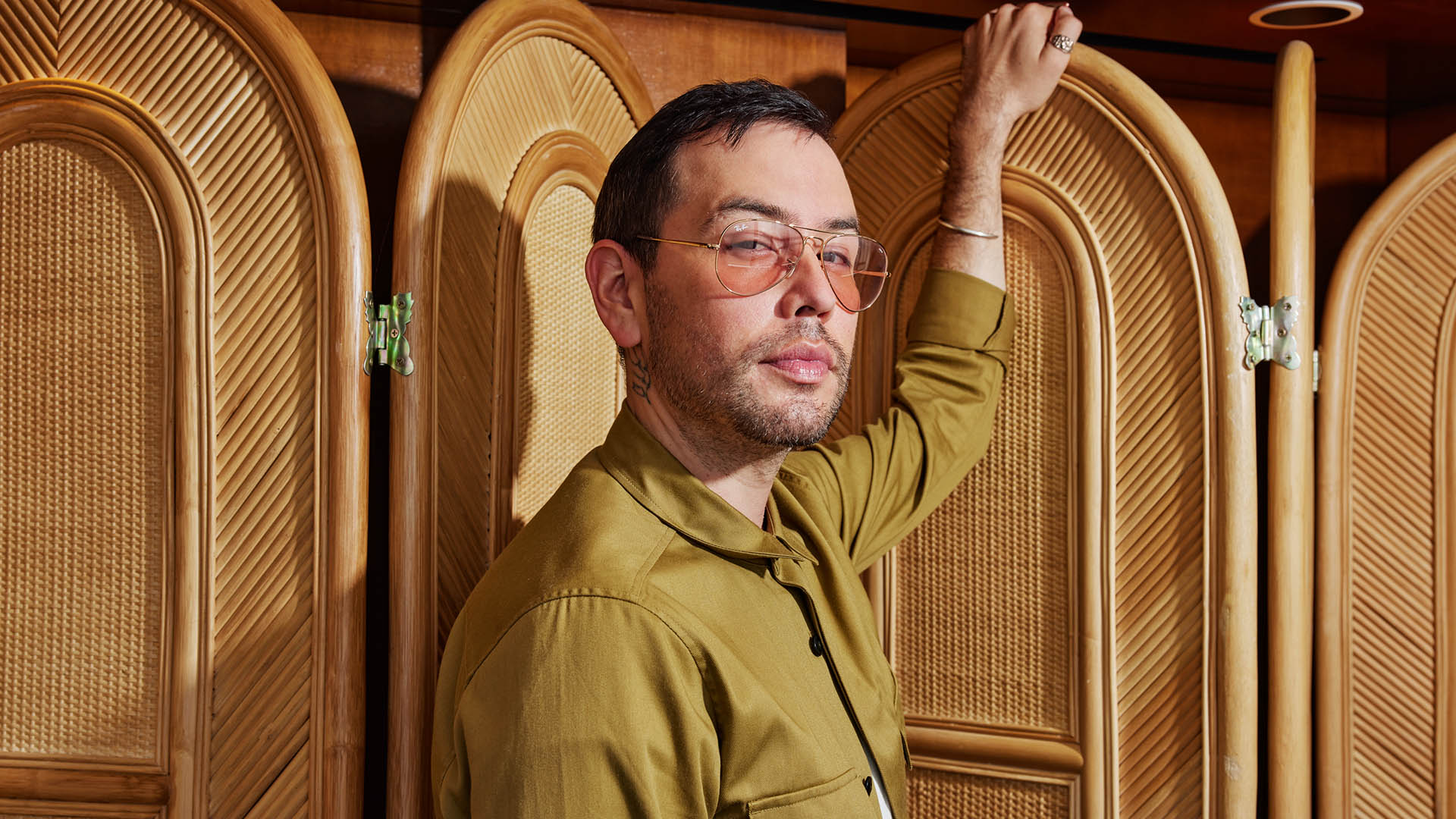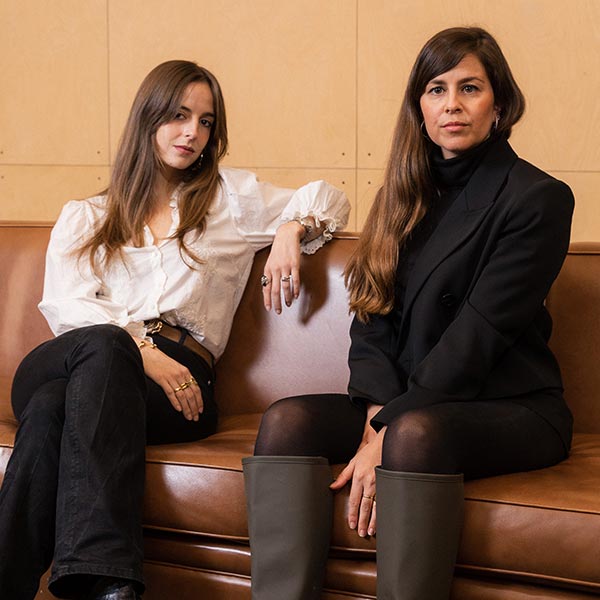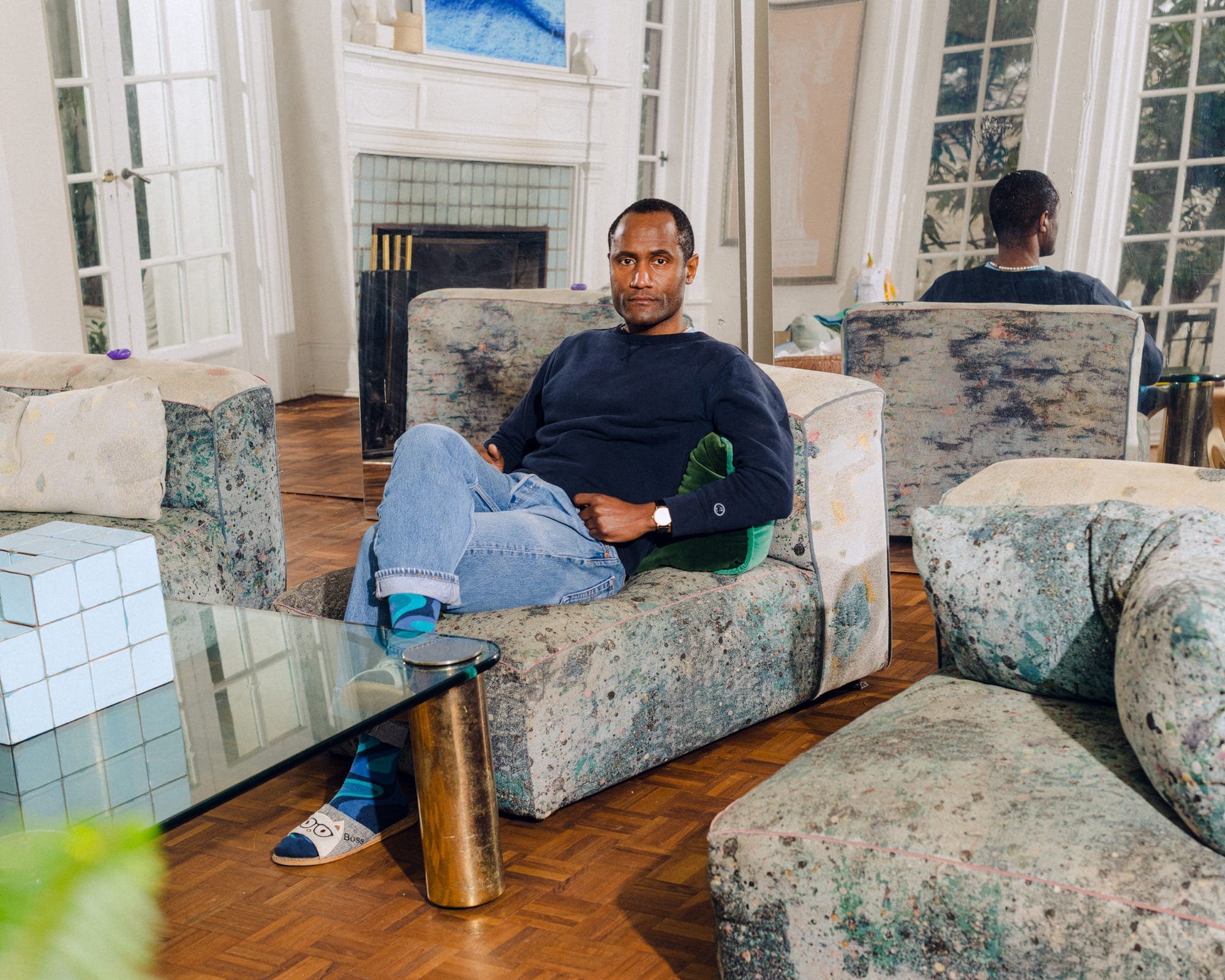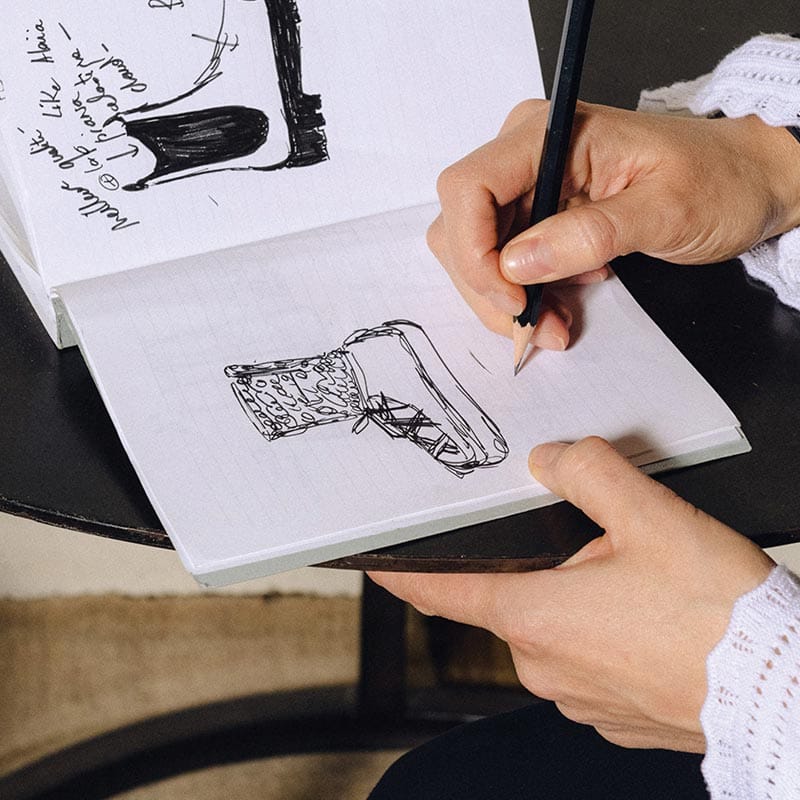Tommy Pico didn’t set out to write for television.
Over more than a decade in New York, and a subsequent move to LA, Pico established himself as a talented poet on the literary scene, one who was able to harness the slant and seamlessness of Internet speak to explore the complex (and often hilarious) inner world and identity of his narrator. Pico was living the Literary Life—people in the poetry world knew his work and he was making his livelihood giving readings across the country. When the pandemic brought touring to a grinding halt, the career he’d worked hard to build looked increasingly uncertain.
As his savings dwindled, and he prepared to move back to the rez, (Pico is Native American and grew up on the Viejas Reservation of the Kumeyaay nation, near San Diego), he got a call from Sterlin Harjo. Harjo had sold a show about teens growing up on the reservation to Fx, which greenlit the project, and he was putting together the first all Native American writer’s room in television history.
As Pico put it, “I was reverent of the room before I walked into it. I knew that I was learning from the best. That I couldn’t have paid for this education, and it behooved me to shut the fuck up and listen and learn and that was my job.”
And so, Pico, who had never been part of a writers’ room, landed in a historic place, with a historic group, with a historic opportunity: to craft a show that was true to life on the rez without pandering or translating for a mass audience … and have it be entertaining. By all accounts, the show has done all those things.
A few weeks back, Reservation Dogs had its premiere at NeueHouse Hollywood. After, we sat down with Pico to hear about getting tapped for the show, finding his superpower, and seeing his work on screen for the first time.
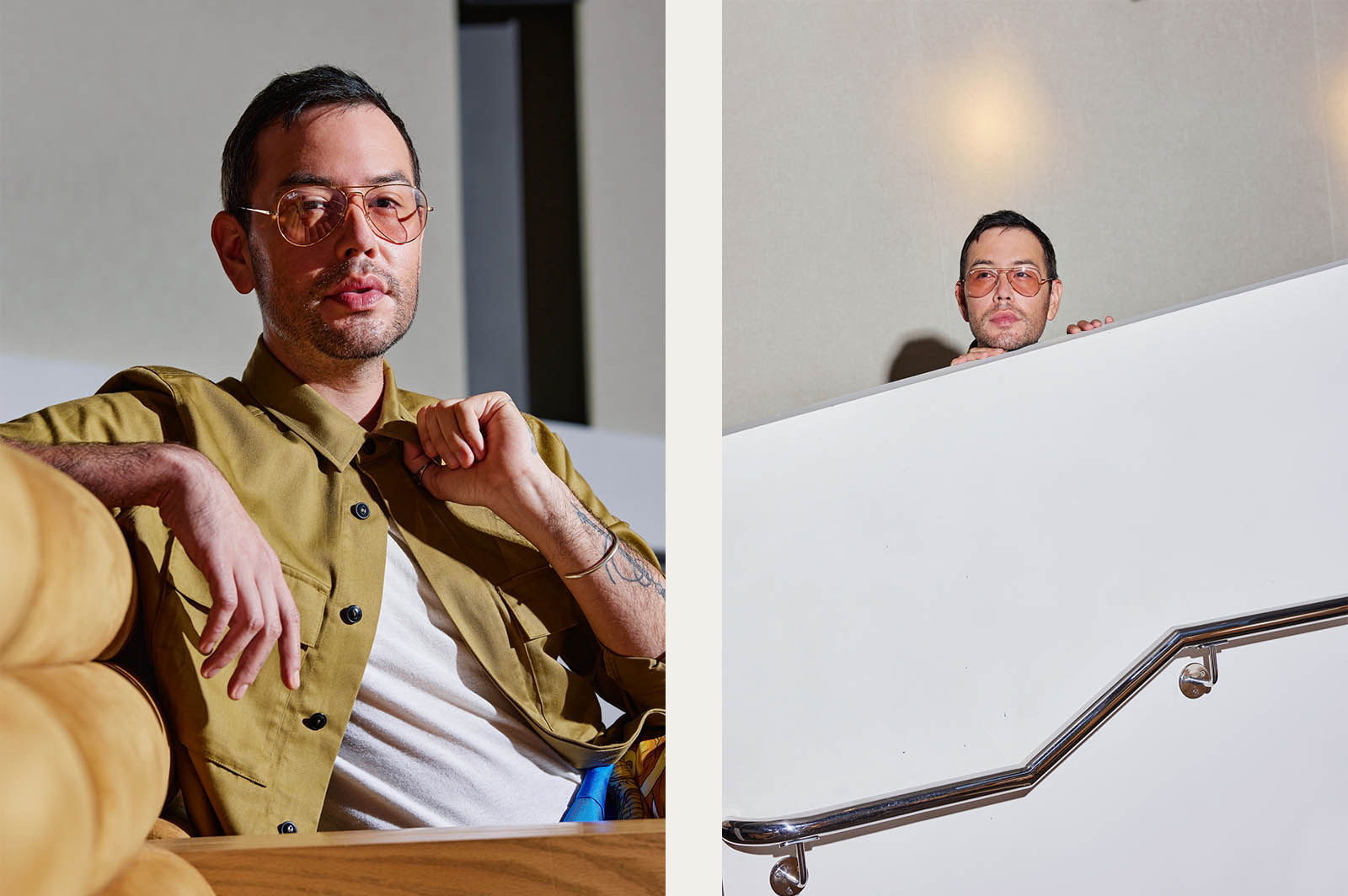
NEUEJOURNAL: What was that journey from being a poet who had worked very hard to establish a career, to deciding to write for television?
TOMMY PICO: I didn’t decide. What happened was, when pandemic hit, I was living with a friend, and she moved back to New York. So I was just here. My rent had doubled, my income was zero because all my gigs dried up in a matter of weeks. I was really thinking, how much longer can I stay in this apartment before I have to move back into the mountains with my brother on the rez? And then on a random Wednesday, Sterlin Harjo called me and was like, “Hey, I’m putting together a [writer’s] room with Taika Waititi and it’s called Reservation Dogs, would you be interested in writing for this television show?” I told him, “So you want to fuck around and make all my dreams come true? What is happening right now?” And he was like, “We start Monday.”
NEUEJOURNAL: Was it a challenge to make the transition to writing for TV?
PICO: There is no better antidote to ego than being at the bottom rung once again. Because I had gotten to the point where, in the poetry world, people knew my name. But otherwise, none of these TV writers knew who I was, none of these executives, none of these people I’m doing meetings with now. And so it was like starting from the bottom once again. The thing is, I think if you want to be a good writer, you have to be an excellent listener. And so it just really drew on those skills. Just sit in a room and be quiet.
“I ended up in a room on a show with people who are making something that I totally sincerely believe is going to have a huge cultural impact.”
NEUEJOURNAL: What was the experience of joining a writers’ room of this caliber and learning on the job?
PICO: I knew it would be unprecedented in the sense that it was the first all-Indigenous writers’ room in the history of Hollywood. I knew I was embarking on something very, very special. And obviously I knew of Sterlin and Taika [Waititi]. Migizi Pensoneau and Bobby Wilson were part of a comedy troupe the 1491s and I had been watching their videos since 2011. Sydney Freeland, who is a writer and director, I had known of her work. And Tazbah Chavez is the person I had known the best going into it. So I was so reverent of the room before I walked into it. For the first week, I didn’t really say anything. I just let everyone else speak until I knew the rhythm, the patter. Very quickly it got to be super familial because I realized that we had all come from such similar backgrounds growing up on a rez, and that we were writing a television show about Native teens who were trying to get off the rez. And that at a certain point each one of us were those characters.
NEUEJOURNAL: Is it the kind of thing where people find certain roles within the dynamic?
PICO: The show runner knows what each person’s superpower is. I’m not very good at plot, that didn’t come naturally to me, but I continue to be very good at understanding the emotional context. So if the person is feeling this way, I can imagine that they do this. That was my strong suit when pitching—pitching from an emotional context and understanding that the resonance of the scene or the change in the character.
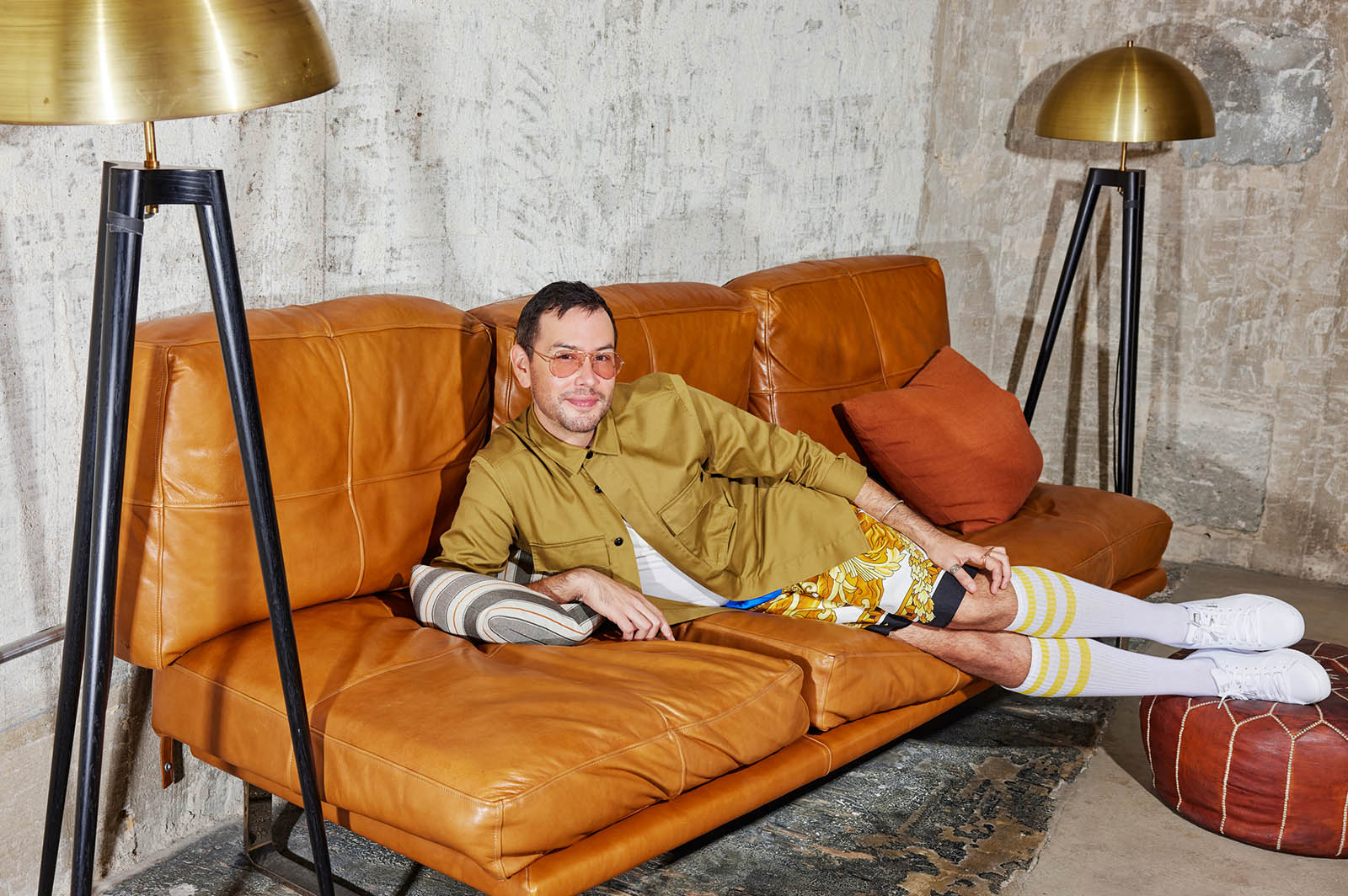
NEUEJOURNAL: Was this your first premier?
PICO: Yes. The premier was last night at NeueHouse. It was my first premier. It was a little bit weird because of Covid. I got there a little bit early and I was ushered upstairs, so I didn’t get to do the whole red carpet experience even though I was supposed to. I’m bad at fancy things because I have poor rez-kid trauma. So anytime somebody in a suit tells me what to do I have to listen to them. But then I was getting texts from some of the writers being like, “We’re on the red carpet!”
NEUEJOURNAL: What was it like to see your work on screen?
PICO: I found myself both quietly and loudly freaking out because I’ve never written anything that was rendered visually, where I made that joke in the room last summer and now I’m seeing it on TV. That was overwhelming. But it’s also hard not to feel like the luckiest bitch in American history because I ended up in a room on a show with people who are making something that I totally sincerely believe is going to have a huge cultural impact. It looks great, and the characters seem real to me in the sense that they are people who I grew up with, if not the people who we were in the room. I can just imagine my teenage self or my adolescent self turning on the TV in the year 2021 and seeing Reservation Dogs. To understand that Native people on television is possible in a way that I never really believed. So, yeah, I just feel stupid lucky.
NEUEJOURNAL: This might be a hard question for you to answer, but how do you think being in an all-Indigenous writers’ room affected the dynamic?
PICO: I didn’t have to explain anything to anybody in Rez Dogs when we were talking about story points, when we were talking about character, when we were talking about little things that happen. There’s something freeing about walking into a space that doesn’t require explanation. You don’t have to walk in there and say this is where I came from, because I think for a lot of people, for most people, reservation life is kind of unimaginable. It’s not something you ever grew up knowing, because it is a particular slice of life. It has a particular flavor that most people are unaware of. They don’t have any context for reservation life. And I don’t fault people for that.
There are biases that I have against communities that I don’t know, and I would just hope that I’m allowed the same grace when I’m asked to talk about my community. On Rez Dogs, they didn’t need to study for the exam because they were the exam. It’s like an inside joke, except the inside is the outside and it’s all the same.
